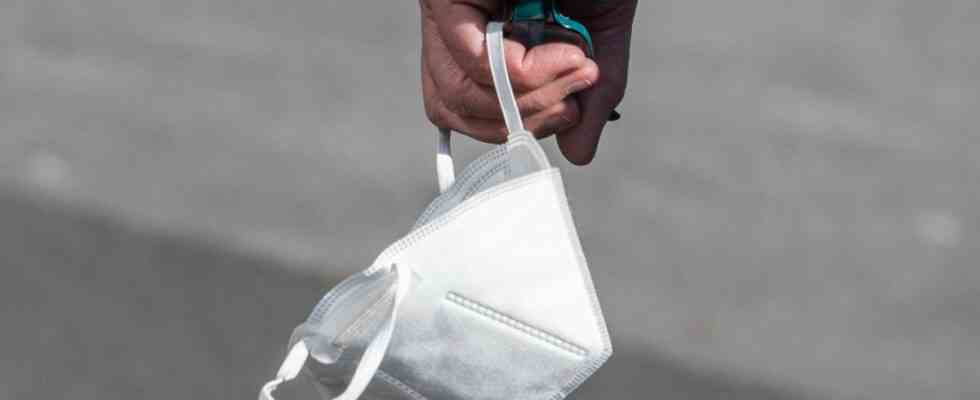Actually, on this Monday morning, everything looks the same as it always does in Munich’s Glockenbach district. Most people stop for a moment in front of the shops and rummage in their jacket pockets for the mask. But the people here don’t really have to do that anymore. After the amendment of the Infection Protection Act, the wearing of masks has only been mandatory in exceptional cases and in special hotspots since Monday. Such hotspots can currently only be found in Mecklenburg-Western Pomerania and Hamburg.
All other federal states have largely lifted the mask requirement. Without a legal order, retailers would have to exercise their domiciliary rights and enforce the wearing of masks. But many are currently reluctant to do so. Not because they considered it superfluous for medical reasons, but because they know that it would be disproportionate to oblige customers to wear masks.
Five customers without a mask were already there that morning, says Ralf Richter-Dellmann, 63, owner of a stationery shop in Munich. And it’s only eleven o’clock. How does he find that people come into his shop without a mask? He shrugs: “It has to be okay with me. I can’t force anyone to wear a mask.” For 30 years he has been standing behind the counter day in, day out, and he enjoys his work. But in these times he is of course afraid of being infected with Corona. He thinks it would be good if people would now voluntarily decide to put on the piece of fabric. “You’ve gotten so used to it anyway,” says Richter-Dellmann.
Many retailers have announced that they will not generally maintain the mask requirement. Some still advise their customers to wear a mask, including Ikea, the clothing chain Ernsting’s Family, the Woolworth department store and the bookseller Thalia. Edeka, the largest grocer in Germany, also recommends that its customers wear at least a medical mask. From a legal point of view, however, the retailer, like everyone else, is forced to let customers shop without a mask.
“Ultimately, it is now up to everyone to protect themselves.”
The unions appeal to employers in the retail sector to ensure the protection of their employees and thus also the customers. Verdi criticized the lifting of the mask requirement in view of the high number of infections. Many employees were very concerned about this.
In the Edeka on Gärtnerplatz in Munich, just a few meters away from Richter-Dellmann’s stationery shop, an angry woman is sitting at the cash register: “What should I do if the customers don’t wear a mask?” asks Silvia Micheller, a saleswoman, without an answer wait and see She feels let down: “The numbers are so high, it shouldn’t have been now. It’s too early,” says the 52-year-old.
Monika Rose agrees. She was just shopping in the supermarket, just a few little things. Rose says what she thinks straight out. It sounds like this: “I think it’s totally stupid that the mask requirement has now been lifted.” It’s just the wrong time. By continuing to wear a mask, she wants to protect herself and others. Another customer, who does not want to be quoted by her name, says: “We are all responsible citizens, we can decide for ourselves whether we wear a mask or not.” She’s fed up with all the restrictions now. That’s why she doesn’t wear masks anymore. Corona tired is what you call it. If you look around, at least in downtown Munich, people with this attitude seem to be the minority.
There is no longer an obligation. But the Theater am Aegi in Hanover recommends visitors to continue wearing a mask.
(Photo: Julian Stratenschulte/dpa)
The German Trade Association (HDE) appeals to the common sense of the citizens. It is assumed that many customers would voluntarily continue to wear the mask when shopping. The federal association had repeatedly emphasized during the pandemic that it was “not a driver of infection”. For a long time, the association and many retailers considered the mask requirement to be a necessary but hated evil. The mask protects against infection, but keeps people from shopping and therefore has a negative impact on sales. The lockdowns had done enormous damage to the textile retail trade in particular. Instead of the mask, other protective measures could be retained. “Ultimately, it is now up to everyone to protect themselves, there is no longer any need for an obligation,” says Jochen Ruths, President of the Hesse Trade Association.

